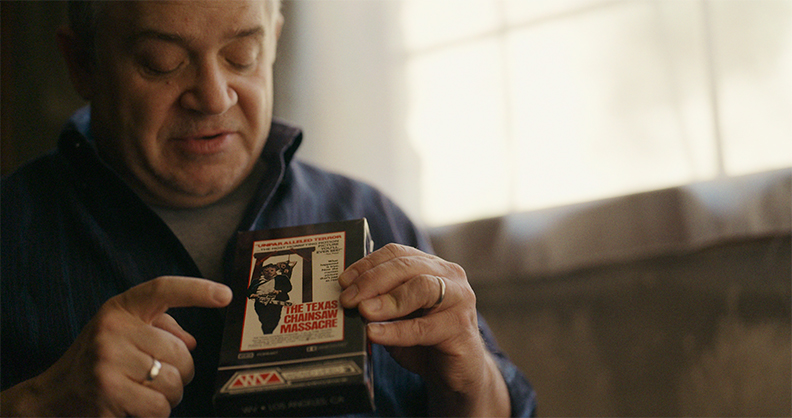
Where Mindfulness Meets Mayhem
TV SERIES REVIEW
The White Lotus – Season 3
–
Genre: Dramedy, Satire
Year Released: 2025
Runtime: 8 x 60m episodes
Director(s): Mike White
Writer(s): Mike White
Cast: Leslie Bibb, Carrie Coon, Walton Goggins, Sarah Catherine Hook, Jason Isaacs, Lalisa Manobal, Michelle Monaghan, Sam Nivola, Parker Posey, Natasha Rothwell, Patrick Schwarzenegger, Tayme Thapthimthong, Aimee Lou Wood, Jon Gries
Where to Watch: available now, order your copy here: www.amazon.com
RAVING REVIEW: I had heard about this series for years, but this was my first time diving in, so, of course, I had to binge it all! The return trip to Mike White’s luxury pressure cooker trades cabanas for kombucha, repositioning the show’s signature social X-ray inside a Thai wellness resort that promises transcendence while serving the same old human mess. Season 3 doesn’t try to reinvent the series so much as refine its favorite maneuver: assemble combustible personalities, apply the slightest pressure, and watch entitlement dress itself up as enlightenment. The setting may sell serenity, but the show understands that people who book “transformational experiences” tend to arrive pre-transformed into exactly who they will remain.
The shift to Thailand matters. It isn’t decorative. The scripts fold the resort’s curated spirituality—sound baths, breathwork, ceremonial rituals—into a precise satire of how wealth packages borrowed traditions for anxious travelers who want meaning along with their turn-down service. White is careful not to lampoon belief itself; he’s skewering the purchase of belief. The staff—gentle greetings, patient smiles, impeccable logistics—hides long memories and quiet calculations. The guests float through incense, convinced their intentions are pure. The show lets us hold two ideas at once: aspiration can be real, and ignorance can be loud.
Parker Posey’s regal prickliness is a joy; she can turn an apology into a veiled threat. Carrie Coon plays brittle assurance with surgical precision, exposing tiny cracks that widen every time another boundary is crossed. Walton Goggins swaggers through the resort with a grin that suggests a man who treats moral hazards like souvenirs. Jason Isaacs wears authority like a tailored jacket, then shrugs it off when the situation turns sticky. Michelle Monaghan gives her character a professional luminosity that curdles when control slips. Natasha Rothwell returns with more gravity than before; her scenes carry the ache of a person who has learned exactly what paradise costs when someone else is footing the bill. Newer faces—Lalisa Manobal, Aimee Lou Wood, Sam Nivola, Tayme Thapthimthong—plug into the machine with distinct notes that keep the season’s blood flowing.
White’s writing remains expert at weaponizing small talk. A casual lunch becomes a tribunal. A sunset cruise mutates into a confessional. Therapy-speak is a favorite target—people announcing accountability while outsourcing consequences—but the show avoids cheap mockery by letting confessions occasionally land with real feeling. The dialogue works because it’s both humorous and diagnostic; characters reveal themselves without realizing it.
Structurally, the season remembers the pleasure of a clean line through chaos. Each episode stakes out a theme—authenticity, inheritance, control, denial—and then cross-cuts through the ensemble to find echoes. Dreams and omens thread the middle stretch in ways that flirt with the supernatural without abandoning realism; call it the subconscious doing laps in the infinity pool. The arc pacing is swift, too: minor indignities compound until one choice forces the mask to slip. That slow burn allows the finale to feel both surprising and inevitable.
Season 3 is unusually attentive to the people who keep the resort running. The staff are not metaphors; they have depth, their own unspoken alliances, and their own long game. The series isn’t interested in neat karmic bookkeeping—this isn’t a morality play where every guest receives a perfectly tailored punishment—but it does honor the idea that those who clean up the mess also carry the secrets. When a staff character finally says the quiet part out loud, the moment lands not as fan service but as hard-won truth.
One key insight involves how couples utilize the language of healing as a new battleground. Partners workshop to fix each other; parents call a cleanse a vacation; adult children discover that “finding yourself” often means being told who you’ve always been. The scripts track how resentment disguises itself as concern. In a lesser version of this story, that would play like a lecture. Here, it’s tragicomic: you laugh because the line is sharp; you wince because you recognize the impulse.
Representation matters in this world, and the series handles identity with more nuance than in the past. LGBTQIA2S+ characters aren’t framed as tour guides to enlightenment or comic foils; they’re as flawed, funny, and contradictory as everyone else. Desire is messy. Power dynamics shift. Consent, communication, and self-knowledge are viewed as ongoing processes rather than mere checklists. When the season confronts fetishization—of people, of culture, of pain—it does so with clarity, giving characters the agency to call it out rather than relying on an omniscient wink.
If the first season asked whether money can buy grace and the second asked whether reinvention can outrun history, this one wonders whether wellness can disguise harm. The answer is complicated enough to be interesting. Some characters earn a sliver of perspective. Others weaponize mindfulness as a shield.
Overall, the season earns its place beside the show’s strongest work. It’s sharper than it is showy, confident in the slow accumulation of small betrayals and tiny mercies. The cast clicks. The writing slices. The laughs hurt a little. If a few ideas are sketched when they could have been painted, the portrait still hangs together with sting and style. Call it a luxury stay you’ll be thinking about long after checkout—especially the parts you’d rather forget.
Please visit https://linktr.ee/overlyhonestr for more reviews.
You can follow me on Letterboxd, Instagram, Twitter, and YouTube. My social media accounts can also be found on most platforms by searching for 'Overly Honest Reviews'.
I’m always happy to hear from my readers; please don't hesitate to say hello or send me any questions about movies.
[photo courtesy of WARNER BROS. DISCOVERY HOME ENTERTAINMENT (WBDHE), HBO]
DISCLAIMER:
At Overly Honest Movie Reviews, we value honesty and transparency. Occasionally, we receive complimentary items for review, including DVDs, Blu-rays, CDs, Vinyl Records, Books, and more. We assure you that these arrangements do not influence our reviews, as we are committed to providing unbiased and sincere evaluations. We aim to help you make informed entertainment choices regardless of our relationship with distributors or producers.
Amazon Affiliate Links:
Additionally, this site contains Amazon affiliate links. If you purchase through these links, we may receive a commission. This affiliate arrangement does not affect our commitment to honest reviews and helps support our site. We appreciate your trust and support in navigating these links.



Average Rating